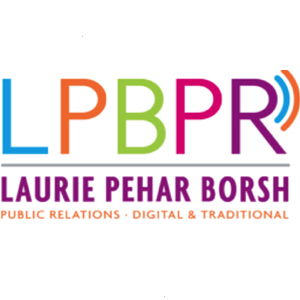Digital Brand Management Strategies for Inbound Marketing Success
In the ever-evolving landscape of modern marketing, one of the key components to success lies in mastering digital brand management strategies. From social media platforms to content creation, brands are constantly seeking innovative ways to engage with their audience and stand out in a crowded marketplace.
But with the rapid pace of technological advancements, staying ahead of the curve can be a daunting task. That’s why it’s crucial for businesses to not only understand the latest trends in digital marketing but also to develop a comprehensive strategy that encompasses everything from SEO to influencer partnerships.
In this insightful article, I dig deep into digital brand management and uncover the winning strategies that are reshaping the way businesses connect with consumers. So grab your coffee, buckle up, and get ready to revolutionize your approach to marketing in the digital age.
Table of Contents
Crafting a Strong Brand Identity
Creating a strong brand identity is crucial for standing out in a crowded online market. Using social media platforms wisely can help reach more people. Partnering with influencers can boost brand visibility and trust. Monitoring our online reputation and responding promptly is important.
Analyzing data is essential for understanding consumer behavior and improving growth strategies. By carefully implementing these tactics, we can strengthen our online reputation and establish ourselves in the digital world.
Leveraging Social Media Channels
Social media platforms like Instagram, Facebook, Twitter, and LinkedIn offer great opportunities to connect with audiences personally. By creating engaging content, using relevant hashtags, and interacting with followers, businesses can increase brand awareness and drive traffic to their websites. Targeted advertising on social media helps reach specific demographics and track campaign success in real time. Consistent posting and a well-planned content strategy are essential for maximizing social media impact and building a loyal online community.
Furthermore, social media allows us to showcase our brand personality and engage directly with customers. Sharing valuable content, responding promptly to comments, and running interactive campaigns can humanize a brand and create lasting relationships with audiences. Social media marketing also provides valuable customer feedback and insights into consumer preferences, helping refine products and services to meet customer needs.
With the right strategies, social media can drive engagement, build brand loyalty, and boost business growth.
Implementing Influencer Partnerships
Working with influencers who have a large following and credibility in specific niches, we can effectively reach our target market. These partnerships help us connect with the influencer’s audience, building genuine engagement and trust. Influencers also bring creativity and unique storytelling to brand campaigns, adding a personal touch that resonates with consumers on a deeper level.
Additionally, influencer collaborations can increase brand awareness, and visibility, and generate buzz around products or services. When influencers genuinely endorse our brand, their audience is more likely to trust and consider their recommendations. This can result in higher brand loyalty and increased sales. By carefully selecting influencers whose values align with our brand’s message, we can expand our reach and create memorable experiences for consumers.
Monitoring Online Reputation
According to a study by Buffer, 73% of consumers form an opinion of a brand based on reviews and online feedback. Effective online reputation monitoring involves regularly checking social media channels, review sites, and online forums for mentions of our brand. By actively listening to customer feedback and promptly addressing any negative comments or reviews, we can maintain a positive brand image and strengthen customer relationships.
Monitoring online reputation also allows us to identify trends, track sentiment, and make informed decisions to enhance our reputation management strategies. We should utilize tools like Buffer to streamline the process and stay on top of our online reputation.
Analyzing Data for Growth
Data analytics tools are essential for understanding consumer behavior, preferences, and trends, allowing businesses to make informed decisions about marketing and overall business direction. By identifying patterns in the data, companies can improve their campaigns, personalize offerings, and enhance customer satisfaction.
In addition, data analysis plays a crucial role in measuring marketing effectiveness and ROI. Tracking metrics such as website traffic, conversion rates, and customer engagement enables organizations to evaluate the impact of their digital brand management strategies. This data-driven approach helps businesses adjust tactics, allocate resources wisely, and continuously improve in the digital market.
Navigating the Digital Landscape
In a world where digital presence can make or break a brand, Laurie Pehar Borsh PR helps businesses navigate the unpredictable waters of online reputation. With a keen eye for detail and a knack for storytelling, I will work tirelessly to craft engaging campaigns that resonate with audiences across the digital landscape.
From social media management to influencer partnerships, their expertise knows no bounds. They understand the importance of staying ahead of trends and adapting quickly to the ever-changing digital landscape.
With their help, clients can rest assured that their brand is in good hands, and their online reputation is in the best shape possible. Trust Laurie Pehar Borsh PR to elevate your brand to new heights in the digital sphere.
Frequently Asked Questions
Key components of digital brand management strategies include social media marketing, email marketing, search engine optimization (SEO), content marketing, and online advertising.
Companies can measure the effectiveness of their digital brand management strategies through metrics such as website traffic, conversion rates, social media engagement, customer feedback, and brand reputation.
In today’s digital age, consumers are constantly exposed to various brands online. Effective digital brand management helps companies stand out from the competition, build brand loyalty, and attract new customers.
In Closing…
As we move further into the digital age, companies must adapt and evolve their brand management strategies to stay ahead of the competition. From social media to influencer partnerships, the options for promoting a brand online are endless.
Businesses do need to take a holistic approach, considering not only how they present themselves on their website. They also need to engage with customers on various platforms. Digital brand management is not just about creating a flashy website or running a few targeted ads. It’s about creating a consistent and cohesive brand identity that resonates with customers on a deep level.
Attention spans are shrinking by the second! Brands must find creative and innovative ways to capture and hold consumers’ attention. Whether it’s through interactive content, personalized messaging, or immersive experiences, the key is to stand out from the noise and make a lasting impression.
In this fast-paced digital landscape, the brands that succeed are nimble, adaptive, and willing to take risks. So, remember to stay bold, stay authentic, and above all, stay memorable.













